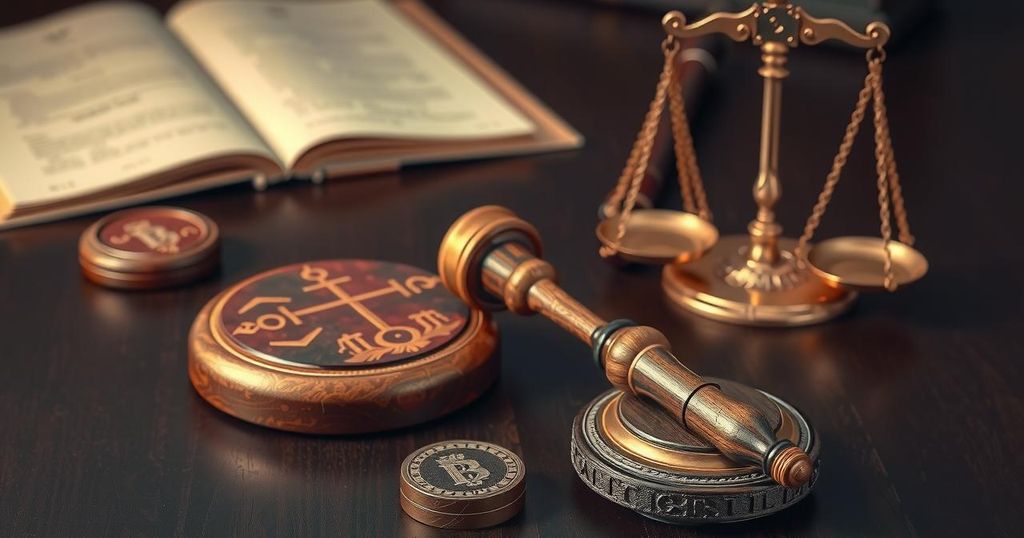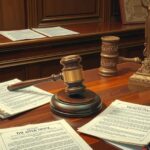Columbia Activists Accused of Prior Knowledge of Hamas Attack in Lawsuit
A federal lawsuit alleges Columbia University student groups had prior knowledge of Hamas’ October 7, 2023 attack, subsequently orchestrating a propaganda campaign. The complaint features claims of a protest toolkit circulating soon after the attack and links to an alleged Hamas support network. These allegations are contextualized by a backdrop of controversies surrounding campus antisemitism and federal funding cancellations.
A recent federal lawsuit accuses leaders of pro-Palestine student groups at Columbia University of having prior knowledge of Hamas’ October 7, 2023 attack on Israel. The plaintiffs assert that these groups coordinated a propaganda campaign to support the terror group’s message immediately after the attack, highlighted by the distribution of a protest toolkit on October 8. This toolkit is believed to have been prepared before the event, as stated in the allegations.
Columbia University has found itself at the center of numerous controversies regarding pro-Palestine protests and alleged antisemitism. There are concerns surrounding the school’s ability to protect Jewish students, resulting in the Trump administration’s cancellation of $400 million in federal grants. Additionally, Mahmoud Khalil, a former student and Palestinian activist, was recently detained by federal authorities on accusations of connections to Hamas, and he is named as a defendant in the lawsuit.
The 79-page complaint was submitted in the Southern District of New York by victims and relatives of those affected by the October 7 attacks. The lawsuit claims that Columbia-affiliated activist groups, such as Students for Justice in Palestine and Jewish Voice for Peace, are part of Hamas’ American propaganda efforts. Plaintiffs allege a coordinated campaign utilizing encrypted communications and promotional materials associated with the Hamas Media Office.
The complaint outlines the dissemination of the “NSJP Toolkit,” which allegedly included pro-Hamas signage and a call for global activism in the aftermath of the atrocity that resulted in the deaths of over 1,200 individuals. Notably, Columbia’s Students for Justice in Palestine reportedly posted on social media just minutes before the attack commenced, raising alarms about their potential foreknowledge.
Plaintiffs claim that this toolkit was utilized to incite further actions and that Columbia organizations followed its guidelines closely. Among the plaintiffs are survivors and family members of victims, including Iris Weinstein Haggai, whose parents were kidnapped from their home and whose bodies remain unrecovered. Another plaintiff, Shlomi Ziv, was held as a hostage for over 200 days and alleges that his captors claimed connections to Columbia-based activist groups, which fueled their operational support.
The lawsuit highlights protests on campus following the attacks, which plaintiffs allege were influenced by propaganda from Hamas and Iran. Key events included social media campaigns and confrontations targeting Jewish students. The complaint references specific messaging from Within Our Lifetime that openly supported “Palestinian resistance,” indicating a troubling alignment with extremist ideologies.
Activist Mahmoud Khalil, currently in detention, is described in the lawsuit as having allegedly coordinated activities with Hamas and similar organizations. The plaintiffs assert that the encampment at Columbia was a strategic initiative by a designated foreign terrorist organization rather than an organic display of civil disobedience. In defense, Columbia Students for Justice in Palestine contends that the university administration has appeased Zionist interests instead of supporting justice for Palestine.
Next steps for the lawsuit include formally serving the complaint to all named defendants, who will then have 21 days to respond. As of this writing, no responses have been recorded from the defendants as they prepare for the legal process ahead.
In summary, the allegations brought forth in this federal lawsuit raise serious concerns regarding the potential complicity of Columbia University’s pro-Palestine student groups in supporting a terrorist campaign. The documented interactions and prepared materials suggest a coordinated effort to further Hamas’ narrative within the United States. As legal proceedings unfold, the implications for the university and its activist communities remain significant, particularly in the context of the ongoing discourse surrounding antisemitism and free speech on campus. The outcome of this lawsuit could set a precedent for how allegations of this nature are handled in academic environments.
Original Source: www.newsweek.com








Post Comment